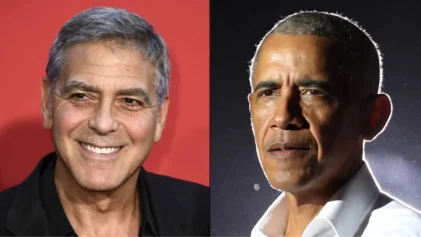There is a tug of war in Chicago over potential presidential library sites for President Obama.
In June 2009, only five months after President Obama took office, the University of Chicago convened a committee to look into bringing Obama’s presidential library to the South Side of Chicago. The committee was made up of nine preeminent faculty members, led by Geoffrey Stone, a current professor and former dean of the law school.
The committee was created to look into the various issues that bringing a presidential library to campus would entail. Stone said the committee is tasked with “planning for the possibility [of a library]. That’s our job—to think about, if it were to happen, how would we want to do it.”
Now, almost four years after the committee was first created, several different sites in Chicago and Hawaii are openly jockeying for the library, but the university remains closed-lipped about its interest.
The committee reports directly to university President Robert Zimmer, who has been kept abreast of the committee’s actions through Susan Sher, his current senior advisor and Michelle Obama’s chief of staff from June 2009 to December 2010.
Sher has visited several functioning presidential libraries to get a sense of what kind of commitment University of Chicago would be required to make, Stone said.
While the university hasn’t openly expressed its interest in a library, several news reports have indicated that it is interested. When asked to comment, university spokesperson Jeremy Manier said that “It is premature to discuss a presidential library.”
Before the University even decided whether to seriously pursue the presidential library, it first had to look at whether having a presidential library would be in line with the Kalven Report, which proclaims a university policy of political neutrality. Political science professor Charles Lipson raised this concern in an interview with the Chicago Sun-Times last year. “[The library] will not be a disinterested, scholarly institution. It will be advancing a political agenda, funded by President Obama’s political allies,” he said.
However, Stone waved off Lipson’s comments, saying that after studying the issue extensively, the committee found that any pitfalls could be easily avoided by keeping a distance from the library.
“The library would be essentially independent. If it was possible to have student fellows work in the library that would be great. If it would be possible to have some kind of academic center that studied issues that rose out of this era – healthcare being an example, or race and politics,” Stone said.
If the university is successful in bringing the library to Chicago, Stone said it would most likely not be on campus.
“It’s not obvious that there’s a good location on campus that would make sense for it. And beyond that, we think it’s important for it to be an asset to the larger community and therefore not to be tucked into the university directly.”
Bronzeville also hopes to see the future Obama presidential library in their neighborhood. Several Bronzeville community groups have been publicizing the old Michael Reese Hospital site at South Ellis Avenue and 29th Street as a possible location for the library. They envision a National Heritage Site telling the story of the great migration of African-Americans from its beginnings in the early 1900s all the way to the election of the first black president.
Paula Robinson, the president of the Black Metropolis National Heritage Area Commission (BMNHAC), said that the Obama library would be “the cherry on the sundae” for the proposed Black Metropolis National Heritage Area.
“[Obama] didn’t just pop out of Hawaii and just come somewhere and it happened. There are people…who recognize, ‘Wow, there was a path there.’ And that path is everyone before him,” she said. “This is the story of how those people were able to put the first black president in the United States [into office].”
Robinson said she has reached out to Sher about collaborating on a bid for the presidential library, and was redirected to the university’s Office of Civic Engagement. Robinson hasn’t set up a meeting with Civic Engagement yet, but said that the university is aware of her interest and is supportive of the larger Black Metropolis National Heritage Area…
Read more on chicagomaroon.com


